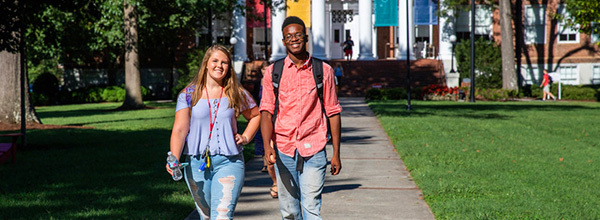Our social influence and advocacy emphasis lets you explore the various contexts and settings in which people communicate. This could be from one culture to another, within a group, at a company, in political talks, or just between two people. You’ll also explore why we choose to talk in the first place, and what comes out of these conversations.
We’ve designed this emphasis to help you build strong arguments and spot any issues that can come up when people talk, including structure and ethical dilemmas. We’ll help you level up your speaking, writing, and online communication skills, setting you up for success in any field.
But it’s not all about classroom learning. You can gain hands-on experience by working directly with local businesses, nonprofits, and politicians through our immersive internship program.
Hands-On Experiences
As a social influence and advocacy student, you’ll have lots of opportunities to put what you learn in class into practice, including:
- Campuswide speaking engagements
- Events hosted by Lambda Pi Eta, the communication studies honor society
- Local and national political volunteer work
- National D-Day Memorial Foundation volunteer work
- Local speaking event opportunities
- Conference presentations
- Big Brothers, Big Sisters volunteer work
- Internships and study abroad
The social influence and advocacy emphasis is also available as a minor.




